Mike Watt’s musical resume is about as cool as they come. He co-founded the influential San Pedro-based indie-punk band The Minutemen, playing bass and composing many of their songs. After Minutemen guitarist D. Boon tragically died in a car accident, guitarist Ed “fROMOHIO” Crawford joined up with Watt and Minutemen drummer George Hurley to form the somewhat underappreciated late-80’s and early-90’s band fIREHOSE. And since 2003, he has been playing bass with re-formed (but perhaps not reformed) punk rock godfathers The Stooges, fronted by Iggy Pop.
This interview was conducted by phone on 2/9/10. This forms the basis of a preview article for Watt’s concert with The Missingmen on 3/7/10 at the Mercury Lounge in Goleta.
[Later interview with Mike Watt available here]
Jeff Moehlis: I’m looking forward to your show with The Missingmen.
Mike Watt: The Missingmen are a band I put together for my third opera. Their parts are recorded. I have to put on the bass – I’m going to go there in June, to New York City. We recorded in the middle of the last tour. We won’t be doing that on this tour. On this tour we’ll be doing the stuff we’ve been playing. The first place I’m going to play [the opera] is in Japan. That’s where I’ll probably debut with the third opera. [It’s called] hyphenated-man.
JM: Sounds cool.
MW: It’s strange how I recorded the drum and the guitar, Tom [Watson] and Raul [Morales], together, without the bass. It’s made of thirty little songs, so I was afraid of it sounded maybe too Minutemen. So I thought the best way was to get rid of the only Minuteman. I wouldn’t let them hear the bass.
Actually I wrote the thing on one of D. Boon’s guitars his pop gave me. And I’m not a very good guitar player, but Tom was patient, and learned my parts. Him and Raul got a rapport without this guy from the old days forcing down on them. Because I can’t help it. I got Minutemen in me. So that’s why I did it kind of unusual. But with albums you can do shit like that. You couldn’t do a gig like that, you know, play the bass later. But you can do it with a record [laughs].
JM: Can you tell me more about the band The Missingmen?
MW: It’s Tom Watson on guitar, Raul Morales on drums. I put it together for this third opera, hyphenated-man. In December I turned 52. Probably too much middle-aged punk rock is out, but, you know, fuck, you have middle-aged punk rockers now.
It’s kind of unusual. The other two operas had beginnings, middles, and ends. Contemplating the Engine Room, the first one, was the story of The Minutemen. A sad ending. The second one, The Secondman’s Middle Stand, was about the sickness that almost killed me [an infection which required emergency surgery and weeks of bedrest]. It was ten years ago this month. That had a happy ending – I didn’t die.
But this third one is kind of… You know, I come from a very short song tradition, I never saw myself writing operas. Life is weird. I just couldn’t fit all the shit into one tune, so I had to make a bunch
of little ones to go together.
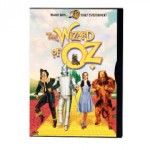
The first one had a bunch of [Richard McKenna’s] The Sand Pebbles and James Joyce’s Ulysses. The second one I paralleled Dante’s The Divine Comedy. This one, I was influenced by The Wizard of Oz, kind of. Everybody knows the story, having seen the movie and all that. It’s Dorothy tripping on dudes, what dudes do to be men, you know? If you’re smart you get a diploma, if you’re brave you get a medal. All this shit. People talk about this middle-age crisis thing, I think that’s one of the trips. Dudes are looking back, finally, after half their life, to try to get it together the way society… Then they’re trying to add it all up personally.
I married it with… ever since I was young I kind of liked this artist named Hieronymus Bosch, a Dutch painter from five or six hundred years ago, and he had a lot of little creatures in his things. And it reminded me of how The Minutemen would use a lot of little songs. So I made songs from all these little creatures in his paintings. I read one theory that these were actually visualizations of proverbs and aphorisms and shit. Well, I didn’t know five or six hundred year old Dutch, so I just made up my own. You know, if somebody was interested in somebody else’s business, you would draw somebody with a big nose, like he’s nosy, right? That’s what this shit was. I thought, hey, that’s kind of interesting. So that’s what it is. These two kinds of ideas, Dorothy’s trip and Mr. Bosch’s trip. You know, gotta write songs about something.
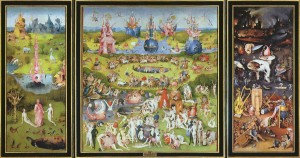
Tom and Raul, I’d played with in different manifestations. I thought, these are the two guys. Tom actually comes from the older days. He was in a band called Slovenly from the SST days. He actually knew D. Boon. Raul is more a younger guy, from the younger San Pedro. Skateboard, the punk scene that came in the later 1990’s. I thought it was a good match for this kind of things that I was doing.
For a long time, I gotta tell you, after D. Boon got killed, I didn’t really listen to a lot of Minutemen. It made me too sad. Have you heard of this documentary called “We Jam Econo”? [“Econo” is slang for “economic”, in reference to The Minutemen’s frugal record making and touring.] These two guys, Keith [Schieron] and Tim [Irwin], made a documentary on The Minutemen. So I had to work with them, of course, you know interviews, showing them around, getting the history of this. So I was listening to The Minutemen, and I thought, “Whoa, I like these little songs!” Kind of a trippy idea. Very econo. You only put in what you need, and then you’re done. That was the idea of the third opera. I’ll go back. I won’t copy The Minutemen, but I’ll use some of those ideas that I started out with with D. Boon and Georgie. That’s kind of the idea of The Missingmen. The name, to me, sounds like Minutemen. But obviously they’re missing [laughs]. It’s Tom and Raul, they aren’t Georgie [Hurley] and D. Boon. Although in spirit…
You know how it is when you do something, you go on and you try different stuff, but there always was the beginning. And I think there’s always something of the beginning always in you a little bit. Without trying to be too sentimental and nostalgic. I ain’t trying to do Happy Days, or some shit. I’m just using some of the stuff that I learned with those guys to help me deal with how I am now. So that’s the idea with The Missingmen.
JM: How would you say your approach to songwriting has evolved over the years?
MW: In some ways, it hasn’t [laughs]. I mean, obviously the opera thing I never did as a younger man. That thing came… Fuck, I finally got the nerve to write about The Minutemen. For fourteen years I couldn’t even write a song about what happened with The Minutemen, and D. Boon getting killed. I don’t know, it just seemed like I couldn’t put it in one song. And when I finally got the nerve to do it… So that was an evolution in a certain way.
But in other ways it’s kind of the same. Like I always start with the title so I have some kind of focus. And then I try make the music around the title. And then I bring in the words. I still do it that way: title, music, words.
The other thing is how I write it. I did write this third opera on guitar, but 95 percent of the time I write on bass. I did it in the old days, although I’d write a couple on guitar sometimes. In my pathetic way – I can’t even hold a pick. D. Boon showed me stuff.
Writing on the bass is kind of unusual, but I think it’s kind of good for the cats I play with, because they can bring more of their instrument to it. I’m not a very good guitarist, I can’t play drums at all, can’t play organs. So when I have my other guys come in and play, I think writing on the bass leaves them a lot of room. Because it outlines the song, it puts some of the starts, the stops, the rhythms, some of the harmonic stuff, but it leaves so much open to these other instruments that have a lot more harmonic and rhythmic kinds of things. The bass is kind of this weird in-between, mysterious thing. I kind of like holding on to that kind of tradition. I never evolved to a piano or a guitar, which are probably more traditional songwriting instruments.
I’ve tried to do it more weird places. In the old days I was scared. In the really old days it would only be for D. Boon. Nowadays I write songs for anyone, or bass parts. With the internet and stuff, people send me songs. I’ve never even met these cats. I’ve never even seen their bands. They’ll send me songs and I’ll listen to it like, “Let me try to make a bass for that.” So I think I’m a little more adventurous in the situations.
This is part of my whole idea about getting less young. Try to keep learning. And the way to keep learning – put yourself in situations that are kind of challenging.
It started a couple of years ago, because even though the possibilities were there with the internet, I was a little afraid. But a couple of years ago I tried this thing called Funanori where I put my bass to this little banjo Japanese thing this lady played in England. After that I just started trying out all kinds of trips, where sometimes I’ll actually play in the same room with them, but I’ve never really met them before. Or I’ll do it right in my pad with Pro Tools, you know, their MP3 file and I’ll put the bass to it. So that’s something I never did in the old days.
But I can’t really take credit for all that. That’s just the way technology and the way of the world evolved. You couldn’t do that in the old punk days. You had to be in the room with them.
So my evolution that way is kind of part of the whole evolution. Which, you know, I think is a good thing. People say that all the good shit was in the old days. It’s not so true. There’s always good shit and bad shit, no matter what the day is.
Also, you know the way younger people know about more music. I think that’s because of the internet, being exposed. They just find out about shit that we had no clue about. They don’t have much prejudice against music that’s thirty, forty years old even. Whereas in my day, when I was a
teenager, you wouldn’t listen to stuff that was five years old. That’s a big difference. I think it’s part of the whole evolution, which is a good thing. You know, the more open-minded, the better off everybody is.
JM: Do you think your bass playing has evolved also over the years.
MW: Well, I’ll tell you, another thing I’ve experienced, which is nothing to do with technology, is my tenure – or time in the classroom – with The Stooges. Almost seven years now. So learning from Mr. Iggy [Pop], I mean, wow. Much different approach to bass. Those guys were from the Sixties you know, and he’s learned me so much, about – maybe – being more traditional.

You know, D. Boon, when we did Minutemen, D. Boon had a whole lot of other ideas of the bass guitar, and drummer, too. He didn’t like this idea of the hierarchy with the guitarist way on top. He wanted it more equal. He put me and Georgie way up there, you know? So, yeah, that’s the way I kind of learned, and got my, whatever, style or something. But learning to play with The Stooges, and learning more fundamental bass… I did that album with them, The Weirdness, and didn’t even use the D or G string. It was all in the bottom strings. Mainly the E string. Different way of playing. But very interesting still. Because the nature of the instrument, you use the low end notes… Humans, the more they do something, the more they want to do more of it [laughs].
It’s always a search for the right notes. This is why somebody just starting on bass can write righteous bass lines. Because they don’t know how to play as much, so they play less, and they can happen upon something.
I gotta admit, when I see a band the first dude I check out is the bass player. I’m thinking, what’d they do? How would I deal with the situation they’re in. What would I play? I’m listening to them. Then after the gig I’ll be talking, hey man… And the cat will tell me, “Yeah, I’ve been playing three months” [laughs]. But it don’t matter, you know? A good bass line is a good bass line.

So I learned a lot, and I’m continuing the learn, because you know Ronnie [Asheton] got killed last year, and now Ig wants to do it with James Williamson, the [Raw] Power stuff. So April through September I’m in Europe playing a lot with them. Twenty five gigs. This time I’m actually playing Ronnie’s bass lines from Raw Power. He switched over. So that’s been really intense on me as far as education and helping me evolve. It’s actually cats from the older days, you know what I mean? Not always newness learns you.
And fuck, also look at the relative situation. I’m finally the young guy! [laughs] That’s a trippy kind of thing. And it’s helped my bass playing.
Of course, when you learn stuff you bring it to all your other situations. It isn’t that this is just for Ig. It goes into over all the kinds of stuff.
Of all the things… I mean, getting to meet D. Boon of course was most profound, because that’s why I got into playing music. But after that, the mindblowing thing is I could have never guessed I was playing with these guys. You know what I mean? You’re listening to them as a kid and shit. Our whole punk scene grows around them, then all of the sudden, after a number of years, I’m playing with them. I still have not been able to figure that out.
JM: How did you end up playing with them? How did that come about?
MW: You know that sickness I was telling you about. They had to put in tubes and surgery and all this shit, and I had to stop playing bass. It was the first time since I was thirteen. And when they pulled the tubes out, I couldn’t play worth shit, and I got all panicked. I thought, isn’t this like a bike? It was like, fuck. So I started doing Stooges songs just to get strength and rhythm and feel. You know, there aren’t a lot of chord changes, but a lot of, I don’t know. You know about some of that older stuff. It’s primal, it’s first source, primary source.
So I thought, shit, not just play these songs, I should make some copy bands and do gigs. I’m still in the fucking gown, you know, my shit’s falling out from the hole they cut in it. So I asked J. Mascis and Murph from Dinosaur [Jr.] on the East Coast, and I asked Peter [DiStefano] and Perk [Stephen Perkins] from Porno for Pyros on the West Coast, let’s do some gigs of just Stooges songs. OK, we did some gigs. J. Mascis had just come out with his J. Mascis [and the] Fog album, he said, “would you play bass with me on tour? We’ll do some Stooges songs, too.” And we came to Ann Arbor, and he said, “Hey, you know Ronnie, call him up.” So he came on down and we started jamming with him, and fuck, taking him on tour.
Scotty [Asheton] was living in his truck. We rent him a drum set, so now I’m playing with both of the Asheton brothers, me and J. Ig heard about this, and asked them to play on his Skull Ring [album]. Then I was on tour with Secondman [Secondman’s Middle Stand] in Tallahasee, Florida. I get this call, and it’s Ig. And he says, “Hey, Ronnie says you’re the man.” I’m like, “What?” “Yeah, we’re gonna do a gig at Coachella.”
So I can’t tell you exactly how it happened, but I can tell you those things happened. They didn’t play together for twenty-eight, twenty-nine years. It is trippy.
JM: So is it pretty crazy touring with Iggy Pop?
MW: You know, the guy works hard. He plays every gig like it might be the last. That guy never goes halfway.
I have to stare at him most of the time because, you know, the songs are in your head for so long, and now you’re playing them. I almost get lost. So to focus and not fuck up I have to really stare at him a bunch.
Actually they’re very interesting gentlemen, besides musicians. Ig about culture, Ronnie was about history, Scotty and nature, Steve Mackay and politics. Very interesting. I’m like the little brother with huge elephant ears made out of sponge, you know, just trying to soak up, just being around that. Very trippy thing.
But when it comes to gig time, yeah, it’s a kamikaze attack [laughs]. It’s hilarious in a way, you know? Nothing like that music, and with that man dancing and singing. I mean, it’s too much [laughs].
JM: How would you say touring is different now, you know with The Stooges or The Missingmen, or whoever?
MW: The Missingmen tour just like I did with the Minutemen. Econo, you know? Conking at people’s pads, playing every night. When you ain’t playing, you’re paying, that old Vaudeville saying. Because it worked for us in those days, it works for me now. I feel it a little more now [laughs]. It’s a little tougher. I have to conk in the boat before the gig usually. I usually do most of the driving, and we get to a soundcheck and I conk in the boat. They pound on the hatch when it’s time for the gig, and I go out there.
The Stooges, maybe at the most three gigs a week. A different kind of… Also, you’re playing huge old festivals and stuff. Not clubs so much.
It was interesting, in November and December of 2006 I was actually doing a Missingmen tour and Stooges tour at the same time. I was going between. It was in Europe. Some were in the clubs with Missingmen, some were Missingmen opening for [Red Hot] Chili Peppers in these enorma-domes, others were with The Stooges in these giant outside festivals [laughs]. All different kinds of things. But when it comes to the bottom line, I think I gotta work my bass for the cats they’re letting me share the stage with. I just feel a debt to them.
All the other things, those are just logistical, personal kinds of differences. The real thing is about the music. You go there, you’ve gotta play good for Tom, play good for Raul, play good for Ig, play good for Flea and them cats having you on board.
The cats who come to the gig, the gig-goers, work hard all week. Ijust feel a big debt to everyone. People on the stage, people watching the stage. I do good for them on the bass.
The other thing is, well I’m a little more in charge of the way The Missingmen do it, you know? It’s my band. The other thing, I’m part of a band so I follow their direction. But bottom line, I try to play good for my guys. I do my best for them, and the folks coming to the gig, of course. It’s a weird thing. I got into music to be with D. Boon, you know? I never imagined this kind of shit, or stuff, or opportunity.
But this is what happened. Why have any other kind of bullshit about it? I’m very grateful for the chance. I want to make good on that.
JM: The Minutemen’s songs – were they rehearsed or played live a lot before you recorded them? Or did you get to the studio and it was spontaneous there?
MW: They were always written out and shit. Sometimes we did get to play them live before we recorded them. Sometimes not. I remember, we had an album done in fall of 1983, and then the Huskers [Husker Du] came to town and recorded Zen Arcade. We thought, they made a double album, we should make a double album. So we wrote all these songs so we could record another album. And I know those didn’t get a lot of chance to be played live.
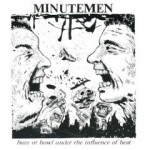
Some things like the Buzz or Howl Under the Influence EP, some of those were just jammed out right before we recorded them. You can tell there’s not even endings. We didn’t know how to end “The Product” or “Little Man With a Gun in His Hand” so I had to fade “Little Man With a Gun in His Hand” out.
Then we tried to do it for Double Nickels, and it was the worst version. That was weird about that [laughs].
Albums were strange for Minutemen. We never thought of them as things on their own. When we first started the band we divided the world into two categories. There were gigs and fliers. Everything that wasn’t a gig was a flier. So in a way albums were like fliers, to get people to the gigs. We’d do them every six, seven, eight months no matter what. Like you need a new flier up on the telephone pole. Then MTV came and we made a $400 video. An interview like this, everything was like fliers.
We came from arena rock, so when we saw punk it seemed like the gig was the big deal. We’d never seen gigs like that, where the dude playing would be talking to you. The scene was so small, you know? It’s a different trip. So we thought, wow, that’s the most profound thing, the gig. So everything else was secondary.
Only in the last couple of years, I’ve been recording a lot now because I was kind of was just doing gigs for maybe ten, twelve, thirteen years, made very few albums, and just did all these gigs. I’ve learned a new appreciation for albums. I think it’s part of being middle aged. They’re there after you’re gone [laughs]. The gigs, they go into the fucking air or memory. So I started doing more albums. I’m so glad that The Minutemen did all those albums. But I remember in the day we never thought about them in history. It was kind of strange. So sometimes we went in prepared, sometimes we didn’t. It depended on the situation. We got thought, we got to stay in people’s minds, let’s put out another one.
JM: Was a lot of it first takes?
MW: Like Buzz or Howl, that one we did for $50. Minutemen had to jam econo. We only recorded once in the daylight. All the time it was midnight to 8:00, it was called downtime so it’d be half as much money. Always recorded on used tape. A lot of times we even recorded in sequence, so you wouldn’t have to spend money putting them in order. So we couldn’t do a lot of takes. We had to move on to the next one.
We didn’t really think that was that important, though. Again, part of our experience with the punk scene… You know, this idea of using music as expression was new to us. Before, when we were boys, you just copied songs in the bedroom off records. You never wrote songs until punk. So if there was shit, we thought that was kind of secondary to the feelings and stuff you were trying to get out.
JM: How would you characterize what each of the band members in The Minutemen brought to the songs?
MW: D. Boon had kind of a Woody Guthrie vibe. Music motivating thinking about stuff going on around. George Hurley’s lyrics are very unique, too. A lot of them he did while he was working on the job, very early so he was kind of semi-conscious aware. His drumming, he brought very unique personality to them. Kind of destroyed the idea of the drummer being an idiot, or some kind of ballast. He brought this awareness of the drum being very, very musical.
I should say too about D. Boon’s guitar. He was very generous in making room for the bass and the drums. He played very trebly, and really let go a lot of the dominance which was in the thinking of how guitar should be in rock bands at that time. But he still was very much into making it distinctive. Even though we learned from listening to Buck Dharma from the Blue Oyster Cult, and The Who albums. He would play very simple if he thought the song needed that. He wasn’t a showy-off guy with the guitar, but he was very distinctive.
And then me on the bass, what did I bring? I don’t know. Actually I ended up writing most of the words. But… OK, most people go in the bathroom and they look at tile, you know? But I kind of look at the grout between the tile. I think maybe that’s what I was. I was kind of grout for the band [laughs]. Like glue, you know? If glue’s got nothing to stick to it’s just a puddle. Maybe that’s what I was with The Minutemen.
JM: How do you think being from San Pedro affected your music and your approach to music?
MW: Now, you know none of us was born here. I was from Virginia Beach, D. Boon up from Napa, and Georgie from Brockton, Massachusetts. We came here as boys, though. I think Georgie six, D. Boon six, and me ten. But yeah, a lot of our life is Pedro.
I think it had a big effect on our music. We were thirty miles from Hollywood, so close enough to play but not really in with the social thing, or even artistic thing. We watched them play and stuff, but we didn’t practice with them. Later on we got closer with Black Flag and stuff, but even then, they were Hermosa Beach, you know? Only fifteen miles away, but still a whole other world.
We’re a working town, we come from working families. That’s kind of our sensibility. I think that had a big effect on how we were trying to find our own voice in music, and shape it. So a lot of that, not chosen,just the way it was. Nobody picks how they’re born and shit. So that was our situation. I don’t know, we didn’t use music so much as a way to be somebody else. I won’t say it’s like a precise mirror, but kind of like a circus mirror. We were kind of reflecting our situation. You know, there’s a lot of different ways to do bands.
At first we were kind of, maybe, feeling inferior. We’re from Pedro, nobody knows about Pedro. We’re up in Hollywood talking to these people, and then we started thinking, maybe that’s OK [laughs]. I remember I started painting Pedro on the front of my bass and people thought my name was Pedro. All right, you know? We just weren’t known. And it was like, we know about Pedro, fuck this, all we knew was Pedro because we grew up there [laughs]. It’s trippy how they don’t know. So maybe we’d be a strange kind of ambassador of Pedro to the rest of the people [laughs].
JM: In the early days you were on SST Records. How was that?
MW: Like I said, with the Black Flag guys, the Huskers, Meat Puppets, we were a very tight group. Yeah, very tight group. It was a… fuck, you know we were part of a movement, and that was part of it. Never asked us to make a demo. Took us on tour. The first time we went to Europe was with Black Flag. It was important for The Minutemen.
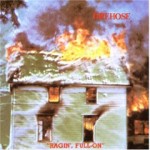
JM: The band that sort of gets lost in the shuffle is fIREHOSE.
MW: Oh yeah, and fIREHOSE lasted longer.
JM: That’s true, and put out some great stuff.
MW: Yeah, and did many tours. At least twenty tours.
JM: Can you describe how that came about? I know it was very hard after D. Boon…
MW: Yeah, D. Boon got killed, and then this young man from Ohio named Edward [Crawford] found my number in the phone book. I didn’t know you had to pay to be not listed. He called me up and said, “Hey, I’m coming over.”
He came from much different music, REM and U2 and people like this. He’d never really been in a band before either. He just went for it. He was a trumpet student at Ohio State. So he just came and we did it, man.
I was in band shape, yeah. I didn’t figure anyone wanted to see me play without D. Boon. Basically me and Georgie played like Minutemen days, right, because we only knew one way to make a band, really. But it was different because of Edward. And Edward was great. Balls like church bells, you know. You knew people were going to try to compare him. He’s a great cat. He helped me out in a place that was very bad for me. We made maybe four and a half albums, twenty tours. It was about seven and a half years. And The Minutemen lasted a month short of six years. Actually, I’m in fIREHOSE longer than The Minutemen.
JM: Maybe with The Stooges now you’re catching up on that?
MW: But The Stooges are kind of different though. I’m not really a Stooge, you know? Play my hardest for them, and, fuck, there wouldn’t be a punk scene without them. I wasn’t from those days. I’m only fifty-two [laughs]. I love saying that. Only fifty-two.
You know what, fIREHOSE played for a lot more people than The Minutemen. Because the scene was so much smaller in the older days. By the time fIREHOSE was playing, a lot more college kids are going to gigs. The thing changed. There was college radio more. In Minutemen days not so much college radio. It was still coming up, you know? So the audience was smaller. Plus I think that a lot of the work that The Minutemen did was starting to pay off, or show results.
fIREHOSE was actually seen by many more people live. For me to explain, it’s hard. Maybe part of it is the loss of D. Boon. I think people miss him. I do. I think other people do. They wonder about D. Boon. It’s kind of like that thing where fIREHOSE didn’t end with that kind of tragedy, maybe. I don’t know what’s in people’s minds. I do know for a fact that more people saw fIREHOSE.
Edward’s living in Pittsburgh now. He was in North Carolina for a long time. Whenever I come through town, I have him come on stage and play somes songs together. Me and George Hurley have done this thing called the Unknown Instructors. Three albums. We’re gonna try our fourth album soon. So still those guys are very close to me.
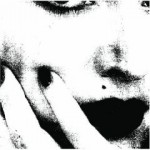
JM: Around the time time, maybe even before fIREHOSE started, there was what I would call a Mike Watt obscurity, the song “Burnin’ Up” which ended up on the Ciccone Youth album, and I guess was released as a single before that. How did that come about?
MW: Yeah, Ciccone Youth, I’m not really a part of that album. They used my demo for the album.
Well, you know, D. Boon got killed and I didn’t want to play. And I was in New York City, and Sonic Youth is recording EVOL. They said c’mon and play. Kim [Gordon] let me use a bass, and I did a couple songs with them. It was like, “Wow, they want me to play.” Thurston [Moore] said why don’t we make record where I do a Madonna one and you do one on the other side, make a single. So it was really to get me back into music. He came up with the name Ciccone Youth. Then later on they did that album and stuff. But it was just a way to get me back playing again. Some time after that, that’s when Edward came. But you’re right, there’s an obscurity there.
Fuck, I didn’t know what to do. I got into music to be with D. Boon, and then he was gone, and it was like, why am I in this? I didn’t know what to do.
JM: I just saw Sonic Youth about a month ago in L.A.
MW: They’re still going. It’s amazing. They’re good people, man. They helped me out in a bad time in my life. Like Edward.
JM: You’ve been performing for over thirty years. How have you survived so long doing that?
MW: One thing about growing up working, you’re not used to having a lot [laughs]. So econo. I keep at it. I keep playing and playing. Many tours. This tour I did in April and May was my sixty-first tour. So I keep at it, and I keep the bottom line very low. I’m not that materialistic of a guy.
I’m maybe kind of lucky, too. But I do work hard at it, man.
Not everything musical you do is going to make money. But that’s OK, because it’s investment in the next musical thing that you’re gonna do. And maybe that makes a little money. My idea is you just keep playing and playing and playing, even though, as I say, all the payment isn’t by the coin. I don’t know, thirty years of doing it kind of helped me put “entertainer” on my work visa, I guess [laughs].
It is a trip to me, almost as big of a trip as playing in The Stooges. I don’t understand how it works so much, but I do know I gotta work hard at it, and not take anything for granted. That’s the big lessons I’ve learned about it. Don’t know about the system, how it works. You see so many people who can play like motherfuckers, you know, they’re great musicians, and it seems they’re not rewarded. And other people don’t try at all, and they like win the Lotto.
JM: The musical Lotto.
MW: Yeah, right. But I don’t understand where the justice is. Or if there is any. It trips me out.
But I do know I should be grateful for whatever happens. And then, don’t stop. Keep going, keep pushing. Interesting things might happen, you know? There’s all kinds of cats playing. Really, the bottom line I’ve come to believe that everybody’s got something to teach me.
JM: What advice would you give to an aspiring musician?
MW: You’ve gotta find the inside voice. The best analogy I can give for it is writing a novel. You don’t have to invent new words, but there’s ways of using the words that everybody knows, where you can get a very personal work. And I think that’s what you’ve gotta do with music. It’s not like you have to invent new kinds of notes, or instruments, or styles. Though that might be kind of neat [laughs]. I still think you can do it with the stuff that’s there, you know that you learn from other people and stuff. I’m not talking about copying them. I’m saying – you know what I mean – like writing a novel. You might not invent one new word, but you can still write an original novel.
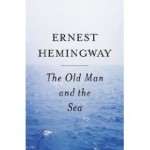
And also, it’s not bigger words. You read “Old Man and the Sea” that Hemingway did, you know, there are no big words. It’s just over a hundred pages. It ain’t that long. It’s still a very good story. And I think the same thing with music. It’s not about incredible technique. It’s finding your voice, finding your expression. Which is probably very difficult. But you know what, maybe it should always be kind of difficult. If there was some system to make that easy, maybe it wouldn’t be as genuine.
When I go and check out someone playing and stuff, I want to go, “Whoa, what was that?” I think an aspiring, a young musician can go for it. I don’t think that’s relegated to old fogeys [laughs]. It’s hard to realize it at first, but that’s what I would tell somebody. You know, try to find your inside voice.
Some people, they might only be doing it a little time. You look at Rimbaud. He was doing those poems only two years. Some people, it might not be a whole lifelong ride, it might just be short, you don’t know. But go for it somehow, because music, like all arts, is a weird trip that connects to humans. It’s a weird fabric. So anybody that comes up with good stuff is actually helping all of us.
JM: You’ve already mentioned that you’re working on hyphenated-man, which is wrapping up. Do you have any other musical plans for the near future?
MW: Well, I’m on like eleven or twelve records. But there’s two that are coming out. There’s two Mike Watt ones. One is hyphenated-man, another one is an album I did about autumn, from a band called The Black Gang, which is with Nels Klein and Bob Lee. I’m gonna mix that this spring. It’s all recorded. It’s not a opera, but it’s kind of a concept, just the idea of autumn. You know, not winter, definitely not summer, definitely not spring. Maybe a little summer [laughs]. Definitely not spring. And hopefully not winter.
I recorded an album in November with two Italian musicians that’s being mixed right now. Il Sogno di un Marinaio. The Sailor’s Dream. That one’s great. Those cats were twenty years, twenty-one years younger than me. And from Italy. My ma’s people were from Italy. So that was a neat kind of connect.
I was just in Tokyo last month and did another album. I’ve actually got three albums coming out of Tokyo recorded in the last year and a half. They’re a group called Brother’s Sister’s Daughter. There’s a great scene of musicians, and they can fucking play their asses off. I hope everybody checks them out. Because I think people might have some stereotypes about musicians from over there. But their music goes all over the place. There isn’t one kind of thing. I’ve been over there a lot lately, checking out their scene and playing with some musicians. Reminds me of Europe maybe twenty, twenty-five years ago.
I did an album with a guy in England that’s almost done. This was very strange because the guy takes samples and makes the music around them. So me and him just jammed for three days and said, “Hey, we’ll be our own samples.” It’s something of these days. You could never have done this in the old days. It’s almost like film work, the way Pro Tools is and stuff, it’s almost like pieces of film. I’m not afraid of it. I don’t give a fuck. At the end of the day it’s sounds coming out of the speakers, and however you get that.
I did something with Jim O’Rourke in Tokyo. This is very strange. We jammed for four days. He played a lot of piano and drums, I played bass. And now he wants me to put my voice and mandolin. Now D. Boon showed me a little mandolin. Because he asked me about things I played and I don’t play that many instruments. But I do know a little mandolin. So he wants me now to overdub mandolin. That’s pretty strange. Jim O’Rourke, a genius fucking cat.
So all these things I’m doing, I’m not trying to do the same old, same old Mike Watt. I put myself in these different places. Yeah, it’s Mike Watt bass, maybe a little mandolin. But it’s actually a lot about the people that I’m playing with. So, in the next year or two you’re going to see a lot of stuff coming out with Mike Watt on them. A couple of Mike Watt things. I’m kind of into this thing, where I’ve been doing just so much of the gig thing. I putting the works out there.
I know it’s the day of the download, and people think albums are dead. But any time you put your music on a medium, it’s kind of a trip. Like a book. Like Leaves of Grass [by Walt Whitman]. Uncle Walt ain’t here to read it to us. It’s a good thing he wrote it down [laughs].
JM: Do you want to set the record straight on anything about your career, the myths or whatever?
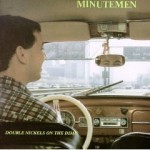
MW: Double Nickels on the Dime. It means going fifty-five miles an hour exactly. Nothing about the I-10 freeway [laughs]. The I-10 freeway goes east-west. You’re not gonna get to Hollywood from Pedro. You gotta take the Harbor Freeway, which is the I-110. It meant fifty-five miles an hour exactly, because Sammy Hagar said he couldn’t drive fifty-five. So we were making fun of that. But people have other ideas.
Oh, and Minutemen doesn’t mean small songs. I had a big list of band names, and I had it as two words. For me it was Minute Men. We were from arena rock, and we were gonna be tiny men. And D. Boon said, “Hey, there’s some right-wingers using this patriotic name. Why don’t we call it Minutemen, so they won’t have any power. There’s some band in Pedro with the same name. It won’t mean anything.” Then later on, thirty years later, now there’s a bunch of idiots on the border with this name. D. Boon’s whole idea was to confuse things. But actually we came up with the name, like we weren’t big rock stars, we were tiny little men.
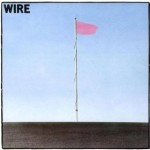
The short song thing we got from Wire. There was a band from England called Wire. Pink Flag, that’s the album that was really, like, “Whoa, yeah, why not make tiny songs?” That really was a revelation to us, that album.

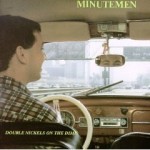
nice post. thanks.
keep them posts coming they are very informative
great post as usual!
inspiring reading. good job on the interviewin!